This post may contain paid links. See more info on my privacy page.
Keep your kitchen counters sparkling clean no matter the surface material with my guide on How to Clean Kitchen Counters! Tough stains are no match with these tips and tricks. No fancy cleaners required! Plus, I've gone through each material to ensure your counter is cleaned perfectly without any potential damage.
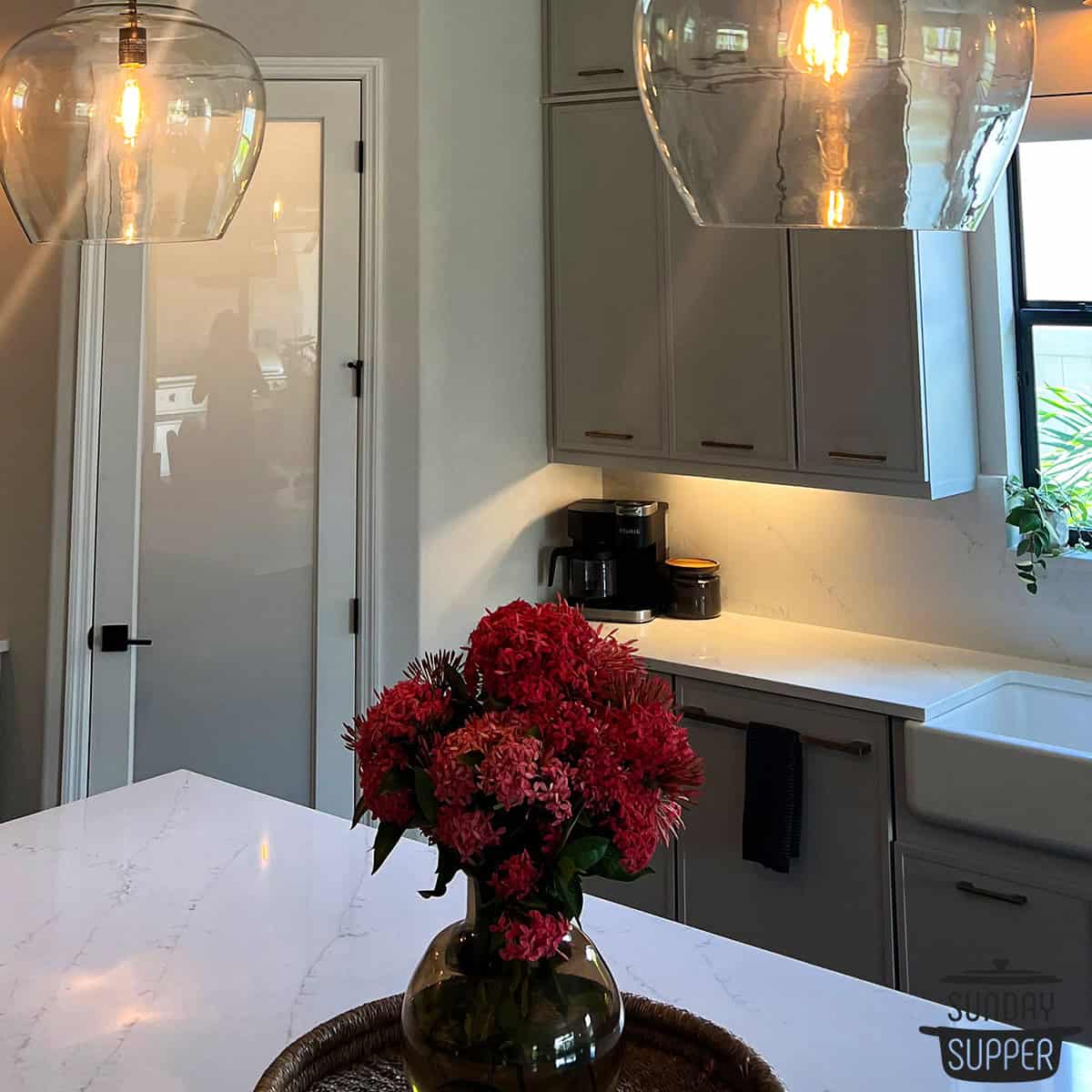
Jump to:
How to Clean Kitchen Counters
You all know that I've been going wild with kitchen renovations lately! Part of the process was choosing new kitchen counters, and I learned my lesson from cleaning a porcelain sink after finally getting my dream sink. This time, as soon as I picked a material, I started learning exactly how to clean it!
There are many different types of countertops out there, and each of them has slightly different cleaning requirements. As the surface you use the most for food preparation, it's important to be regularly cleaning and disinfecting your counters.
Luckily, proper food safety doesn't have to be hard. All it takes is a few cloths and common cleaners, and you'll have pristine, scratch-free counters ready for whipping up the next Sunday supper.
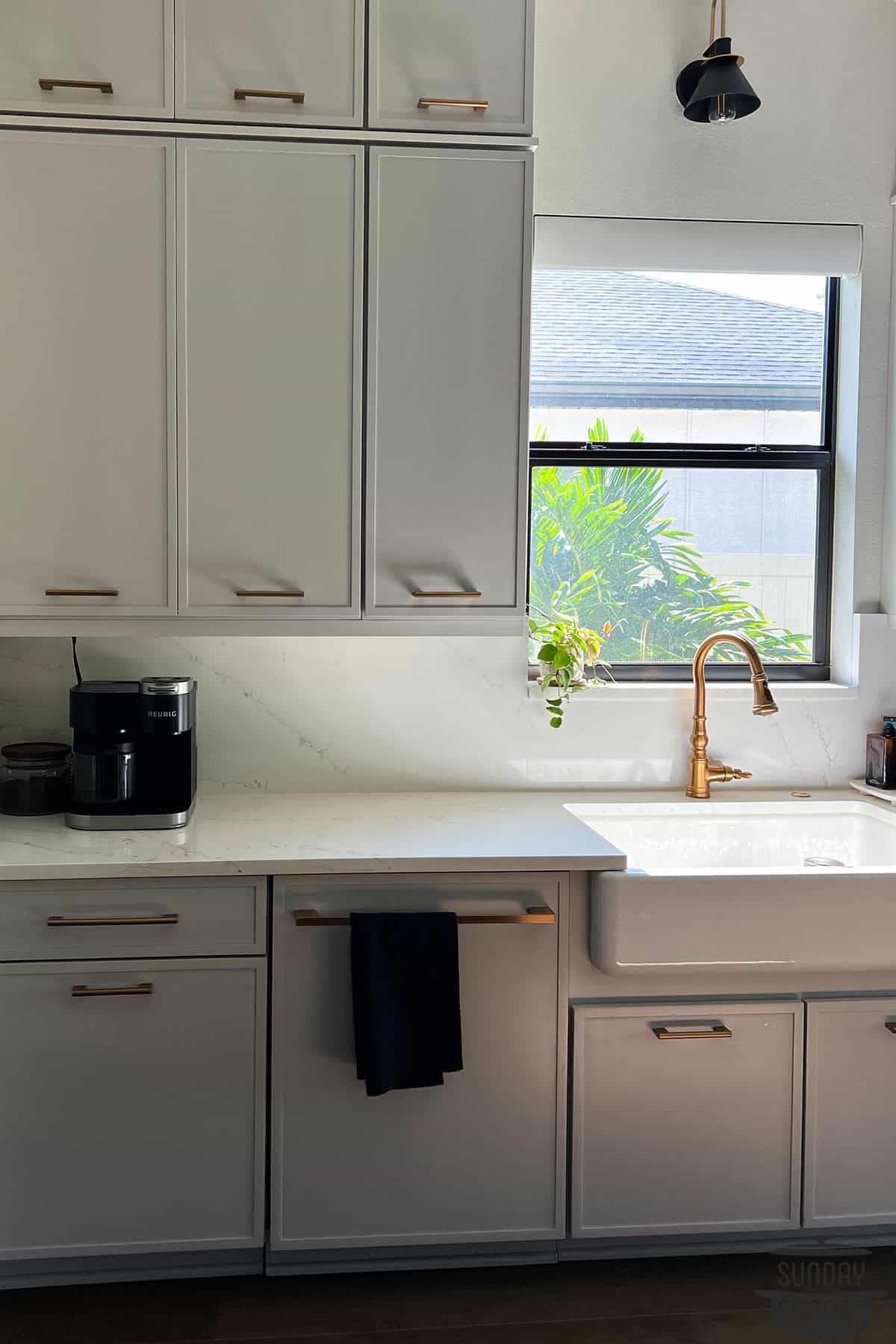
Cleaning Different Kitchen Countertops
- Quartz Countertops: Quartz is a tough, stubborn material with a beautiful shine. It can be cleaned easily and tends to have a pattern that hides small marks and damage.
- Soapstone Countertops: Soapstone is a very soft material, so I don't recommend anything except dish soap and a soft cloth for cleaning it.
- Laminate Countertops: The most common type of countertops, cleaning laminate takes a gentle touch. Use nothing more abrasive than dish soap or spray cleaner, as it's easy to scratch through the laminate surface.
- Marble Countertops and Granite Countertops: Marble counters, as well as granite counters, have special cleaning requirements. These natural stone countertops are damaged by citrus juice, so it's important to never clean them with cleaners that use citrus.
- Tile Countertops: Cleaning tile counters is very similar to how you clean marble countertops, but you'll have grout lines to deal with. I recommend using a toothbrush or soft bristle sponge to clean between tiles.
- Wooden or Butcher Block Countertops: A fantastically convenient counter type for anyone who does a lot of cooking, these counters take a lot more care than other types. Check out my special list of tools for cleaning wooden counters.
What You'll Need
- Warm water: Use water as hot as you can tolerate while wearing gloves. This helps clean off and kill bacteria!
- Dish soap: A nice mild dish soap will work perfectly to clean almost all surfaces, and is safe to use no matter your countertop's material. The only exception is if your soap contains citrus extract; if so, avoid using it on marble or granite.
- Spray cleaner: All-purpose cleaner can be used on laminate, while I recommend picking up a surface-specific cleaner for sealant-covered surfaces. I like Weiman brand for my quartz counters!
- Paper towel: Paper towels can be used instead of a cloth for scrubbing and wiping down counter surfaces. I prefer to use them when the counter is particularly messy!
- Microfiber cloth: This is the important part- you'll want at least two cloths! One is the "wet" cloth used to wipe down the counter, and one is the "dry" cloth used for drying the surface. This two-cloth system prevents bacteria growth on the towels. I recommend picking up a pack of microfiber towels so you always have a pair on hand.
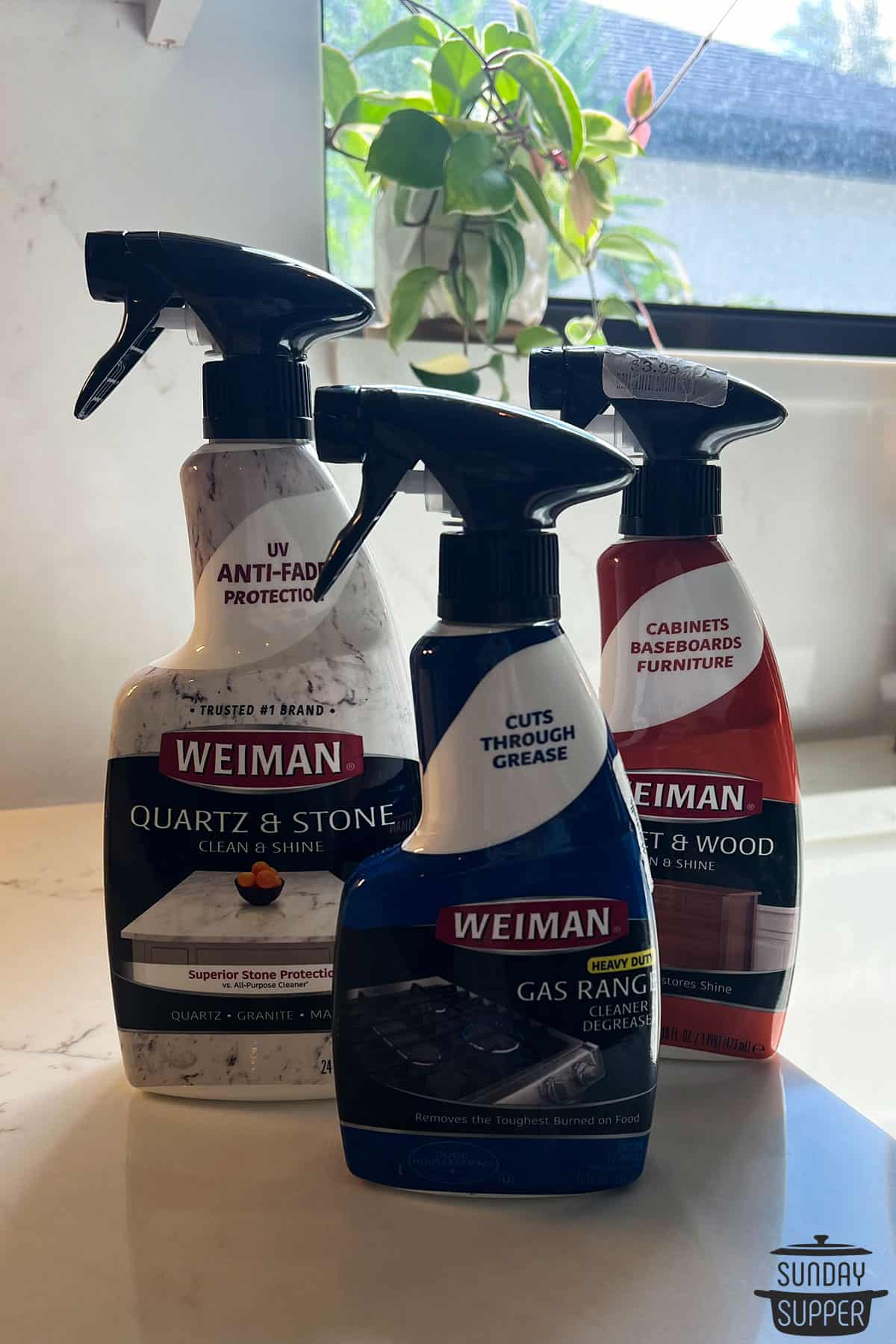
For tough stains
- Baking soda: A mixture of baking soda and vinegar helps clean off stubborn stains, and deodorizes at the same time. As a mild abrasive, it can scrub away stains left from tricky residue like food coloring and curry powder.
- Sponge: Use a soft sponge that isn't too bristly.
- White vinegar: Vinegar pairs with baking soda to make an impressive cleaner, and vinegar alone is excellent diluted with water in a spray bottle.
- Barkeeper's Friend: An alternative to vinegar and baking soda, Barkeeper's Friend is practically a miracle cure for stains.
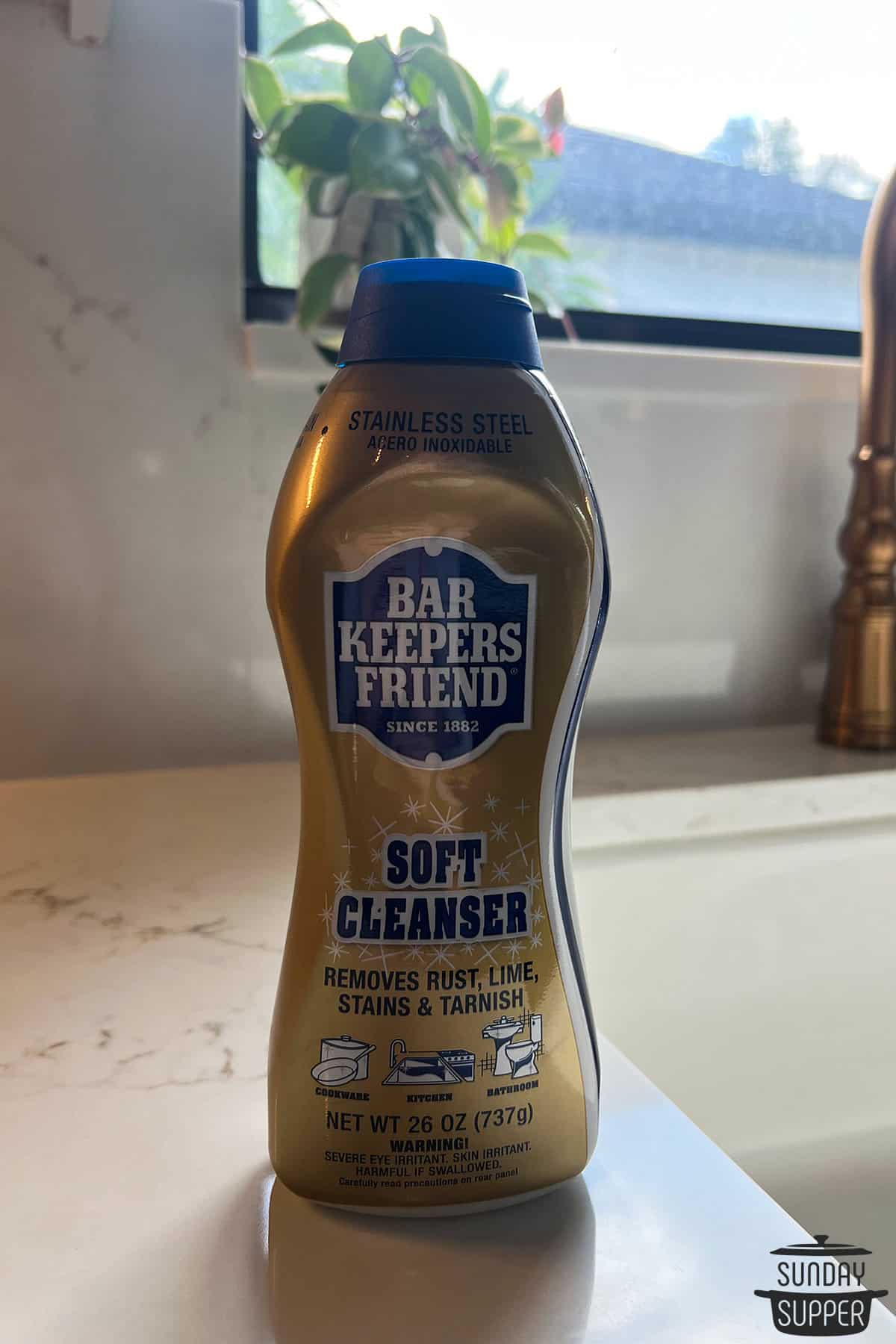
For Butcher Block Countertops
- Mineral oil: Food-grade mineral oil can help re-seal and clean up scratches on wooden butcher block counters.
- Lemon: A classic choice for natural cleaning, using half a lemon to rub salt into stains releases lemon juice and oils while removing grime.
- Coarse salt: Salt makes for an excellent abrasive for cleaning a wood countertop, as it can scour surfaces without leaving streaks or scratches.
- Scouring pad: A scouring pad might be required for especially tough stains.
- Dough scraper: Flat, hard surfaced tools like dough scrapers are especially handy for cleaning wooden counters, as they can be used to scrape up crumbs and debris before adding cleaner.
- Sandpaper: If the counter is scratched, fine sandpaper can be used to lightly buff away the scratches.
How to Clean Kitchen Countertops
1: Wipe Off Crumbs
Before adding cleaner, use a damp sponge to wipe down the surface of the counter to remove any large crumbs or dust.
2: Spray or Add Soap
Using either diluted dish soap on a sponge or a spray cleaner, apply cleaner to the entire counter surface.
3: Scrub and Wipe Down
Use a soft bristle brush, a microfiber cloth, or sponge to scrub any stuck-on food residue and wipe down the entire counter.
4: Tackle Stains
If there are any particularly stuck on food stains or stained counter surfaces, apply a layer of baking soda and spray with white vinegar, then scrub the stain with a sponge.
5: Dry Thoroughly
Using a new microfiber cloth, thoroughly dry the entire surface. Make sure to dry it well and use a fresh cloth, as this is the most important step in avoiding bacteria growth!
Tips for Cleaning Kitchen Counters
- Always use a two-cloth system. Use a fresh cloth each day to dry the counter; you can then use that cloth as the wiping down cloth the next day. This prevents damp cloths from being used to dry the counter, which streaks your nice clean counter with all sorts of bacteria!
- Squeeze out sponges well and leave them to dry in a location away from water. Leaving a damp sponge in the sink for long periods of time can lead to bacterial blooms.
- Watch out for citrus in cleaners! Citrus oils and juices will damage granite and marble countertops. Natural cleaners are more likely to include oils.
- Use hot pads under pans and serving plates to avoid heat damage, and keep an eye on any can or bottle set directly on the counter to prevent rust or moisture rings.
Avoiding Stains
The best way to avoid stains is to clean regularly! Wipe down the entire surface of your counter every night and give it a quick wipe after each meal. This will ensure that no residue rests on the counter for too long.
Kitchen Countertop Cleaning FAQ
How to remove turmeric stains was one of the first things I had to learn! Combine a few drops of dish soap, a tablespoon of white vinegar, and hot water, then pour it on the stained area of counter. Let it rest for a few minutes before scrubbing vigorously. Repeat until the stain is removed!
Small scratches can easily be fixed by cleaning the scratched area well with soap and water, then spraying the surface with a material-appropriate polish, such as wood or marble polish. For deeper scratches, wax sticks or filler may need to be used.
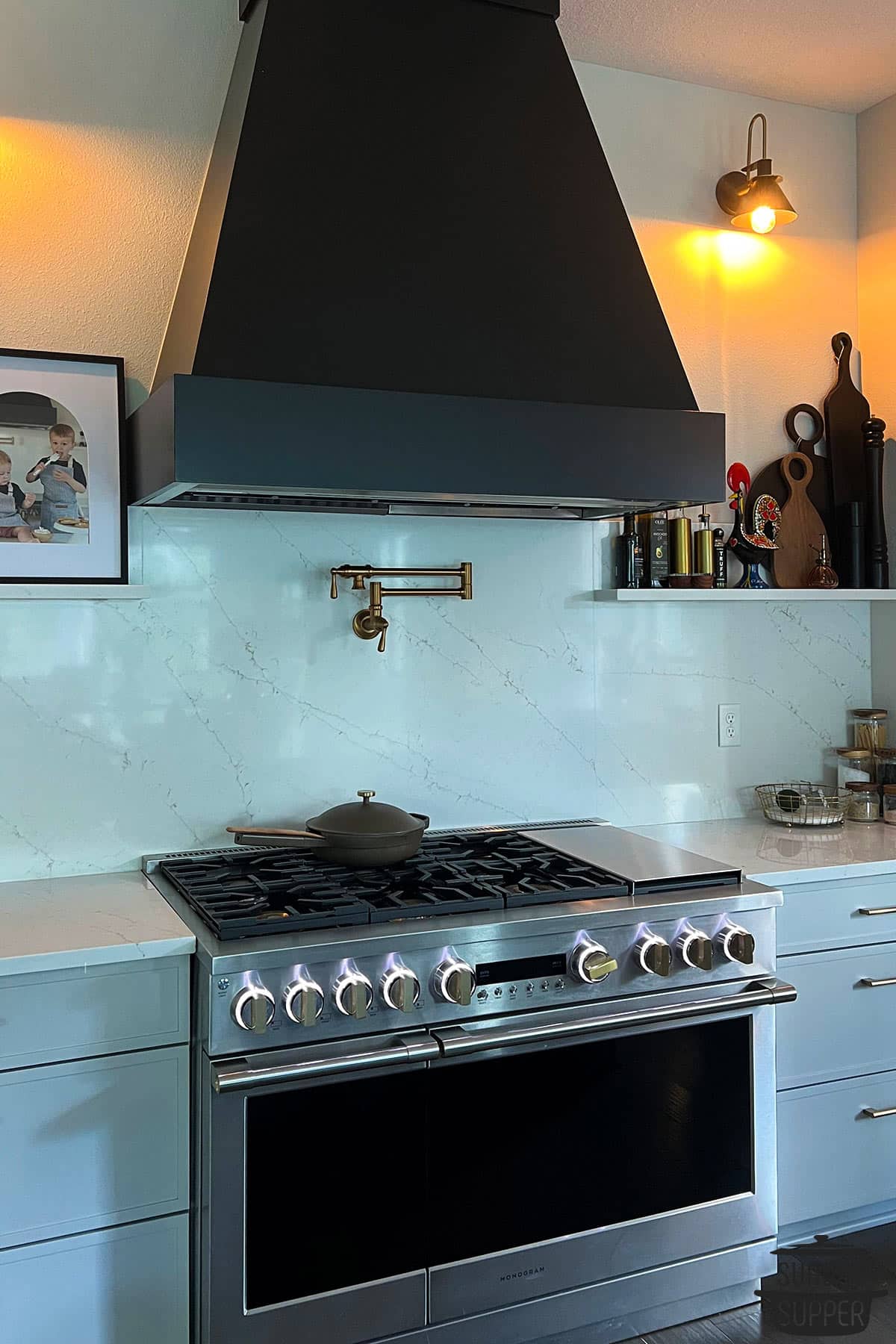
How-to Guides
- Learn how to perfectly tenderize even the toughest steak.
- Make the best use of your kitchen gadgets starting with a mandoline.
- Upgrading to a convection oven? I have the perfect guide for how to use one.


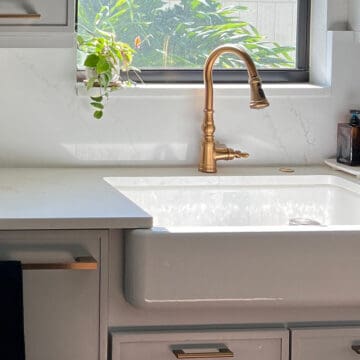
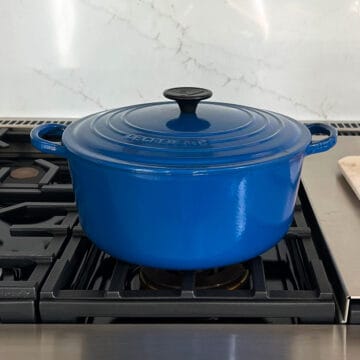

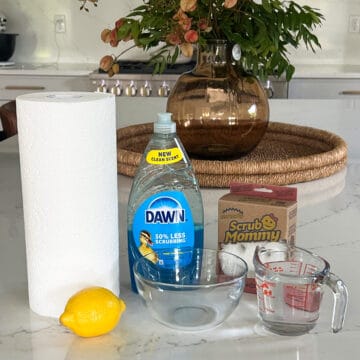
Comments
No Comments